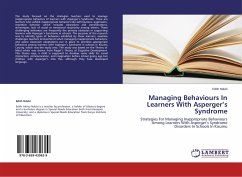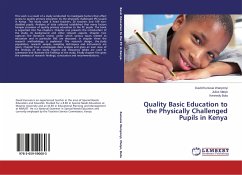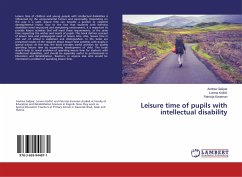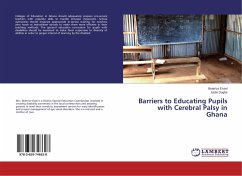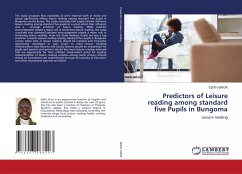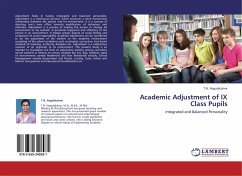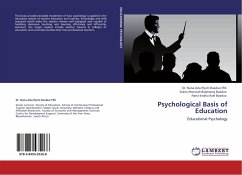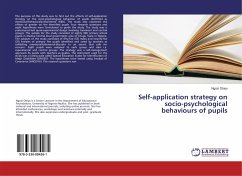
Self-application strategy on socio-psychological behaviours of pupils
Versandkostenfrei!
Versandfertig in 6-10 Tagen
33,99 €
inkl. MwSt.

PAYBACK Punkte
17 °P sammeln!
The purpose of this study was to find out the effects of self-application strategy on the socio-psychological behaviour of pupils identified as emotional-behaviorally-disordered (EBD). The study also examined the effects of gender on the identified pupils. Four research questions and eight hypotheses were formulated to guide the study. The study was a pretest-post-test quasi-experimental design involving treatment and control groups. The sample for the study consisted of eighty (80) primary school pupils in Nsukka Central local government area of Enugu State in Nigeria. The subjects of the stu...
The purpose of this study was to find out the effects of self-application strategy on the socio-psychological behaviour of pupils identified as emotional-behaviorally-disordered (EBD). The study also examined the effects of gender on the identified pupils. Four research questions and eight hypotheses were formulated to guide the study. The study was a pretest-post-test quasi-experimental design involving treatment and control groups. The sample for the study consisted of eighty (80) primary school pupils in Nsukka Central local government area of Enugu State in Nigeria. The subjects of the study consisted of fifty-five (55) males and twenty-five (25) females of primary five pupils identified and rated by teachers as exhibiting emotional-behavioral-disorder to an extent that calls for concern. Eight pupils were assigned to each group and class i.e. experimental and control groups. The strategy was a self-management approach by pupils with teachers as guides. The instrument used for the study was a rating scale called Special Education Scales for Identification of Major Disabilities (SIMSED). The hypotheses were tested using Analysis of Covariance (ANCOVA). The research questions wer



